While I was still doing my high school diploma, I already knew that I wanted to study. When looking for a degree course, I learned more about the dual work-study program – which was of direct interest to me. I then looked at various careers sites to find out which companies offer a dual work-study program in which fields and eventually came across KHS. I was extremely pleased that my application was successful because the company and dual work-study course really sounded very interesting for me. I then did an apprenticeship as an electronics engineer for automation technology coupled with a degree in technical systems engineering, majoring in electrical engineering and automation technology.
This training model was very attractive to me as I could already start doing practical work while studying the theory – which is a good idea if you’re in the technology sector. What’s more, I was able to gain my first work experience at the company and in doing so finance my studies at the same time.
In principle, you should be good at science and thus qualified for this field. I also had a special high school diploma as back then I was able to take electrical engineering as one of my majors. This meant that I already had a good idea of the topic plus relevant prior knowledge. I really enjoyed this subject while still at college; I thus knew that I wanted to carry on working in this direction.
I did my degree in three years. My apprenticeship lasted 2.5 years and half a year later I then also finished my university course. After this, I worked full time as a software engineer at KHS for a year. Doing a bachelor's degree plus an apprenticeship gives you lots of perspective. The degree course especially opens lots of doors, even more than if you just do an apprenticeship. This is why I’d recommend that people definitely do a degree in this field. My master’s degree is now the icing on the cake for my career, but by no means a must. I decided to go for it, however – as a full-time option, as there were no suitable part-time work-study courses for me. Therefore, I’m now again working as a student trainee at KHS. But this works very well for me.
The job gives me extremely good career opportunities and there are lots of different fields you can specialize in. During our apprenticeship we first learned the basics. We then worked our way through the various departments during our period of training. One area I was assigned to was network technology where I learned to draw network plans. I worked in Standardization at KHS while I was writing my bachelor’s thesis. After my degree I then moved to my current field of work: MES project planning. MES stands for Manufacturing Execution System. This is a higher-level system on the machinery that manages and controls it and collects data for the customer.
My days at work were always very different. There were days when I only had meetings. On others I spent most of my time designing, programming and testing. And sometimes there were things to do that were less complex but instead demanded more routine work. At lunchtime I could then meet up with my colleagues and swap notes.
“The more I learn, the more I can also contribute my own expertise.”
I really like the fact that I’m always learning and becoming more and more independent. The more I learn, the more I can also contribute my own expertise. I really love this and this is really helping me to develop. My working days and range of tasks are also extremely diverse which means that the job’s never boring!
The feeling of success you have after you’ve worked on something and then seen it finished in its practical setting is always exciting. You also have the chance to travel at KHS. I was in the USA for two months at the beginning of 2021, for instance, which was a fantastic experience where I learned a lot. As I was heavily involved in the project, I was allowed to join my colleagues at the installation site in the USA. This was a great opportunity, especially as theoretically this isn’t a must at KHS. In other words, if it doesn’t fit in with your own private plans, you’re not sent out. Of course, it depends on the department you work in. There are also fields where travel is one of the day-to-day activities or at least part of the job because of your area of responsibility. But this is what’s so good about such a big company like KHS; here, you can find out exactly which area you like and which really suits you.
I’d travel a lot, probably to South America. I think there’s a lot to see there and you can really chill out. I’d love to do this. I’d also like to use the time to devote myself to my hobbies – and maybe even find some new ones.
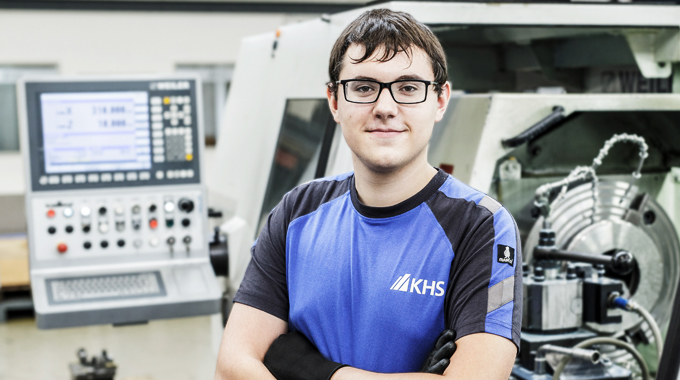
“This exciting branch of industry and the good chance of being hired by KHS had me convinced.”
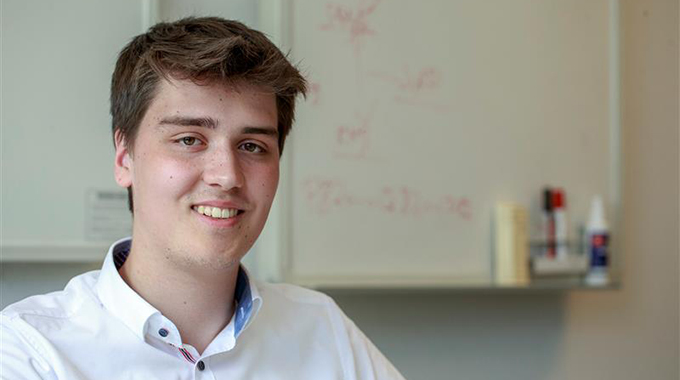
“What I especially liked about KHS was the fact that it’s such a large company with a top position in its branch of industry.”
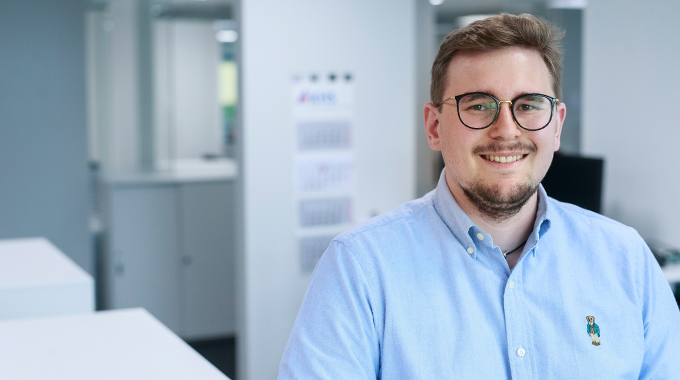
“As a dual work-study student you’re integrated into the company processes really quickly.”
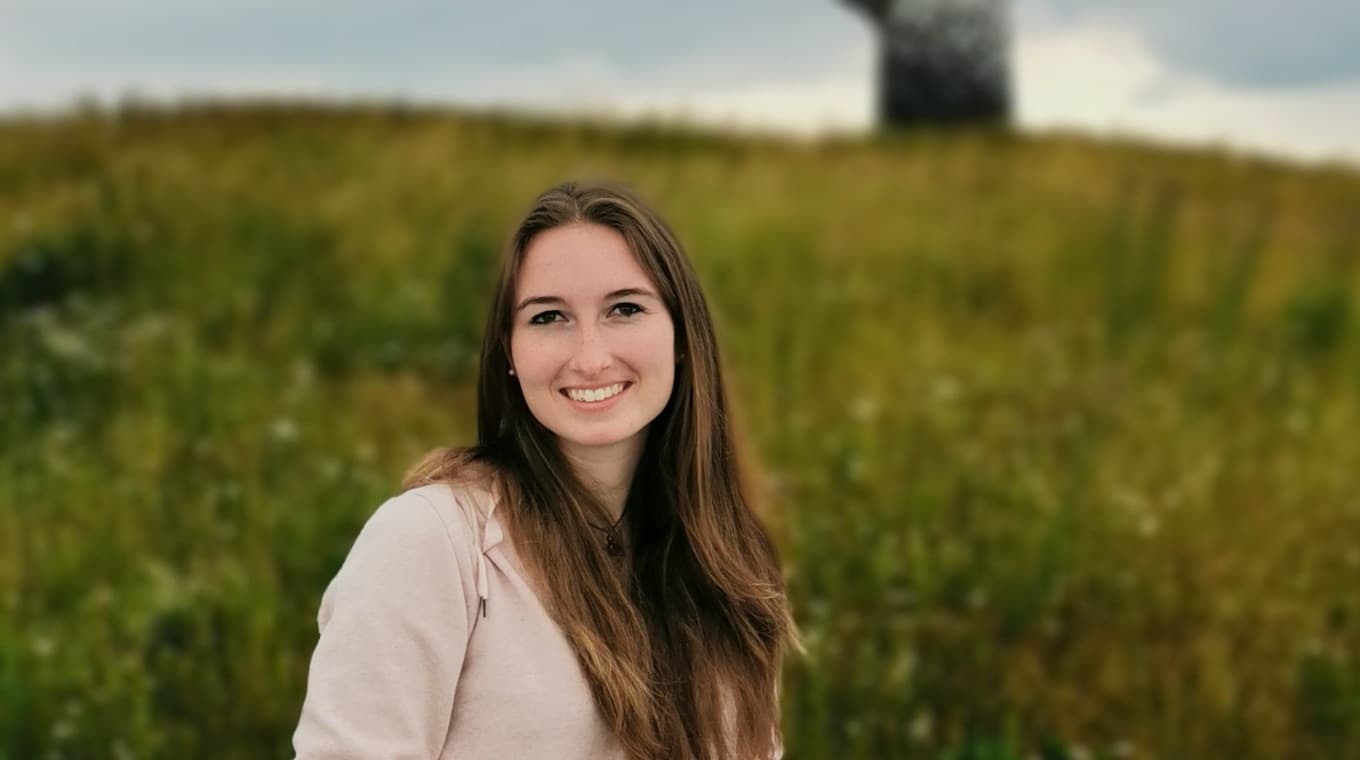
“The insights you have into all departments allow you to build up your knowledge very quickly.”
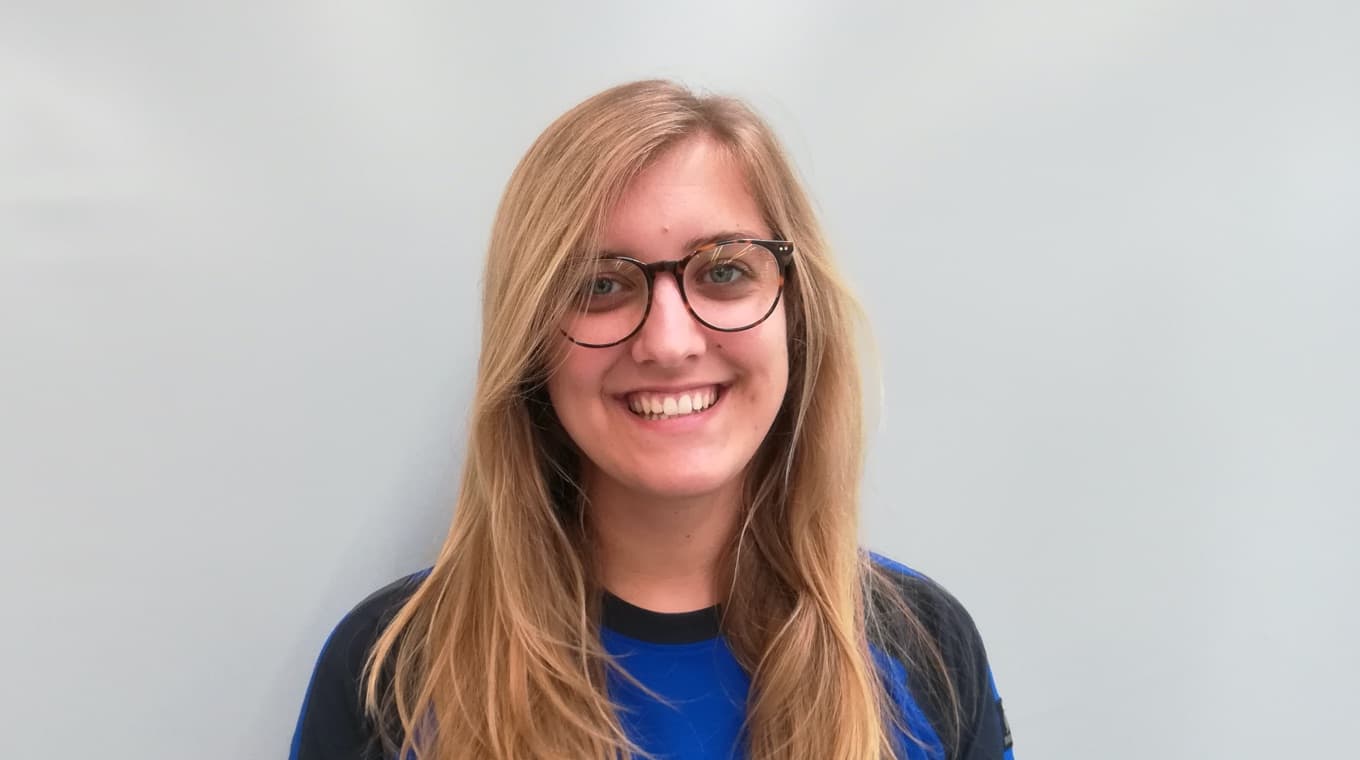
“The dual work-study program is all about gaining work experience early on in your career and having quick practical reference to the theory. This was important to me.”
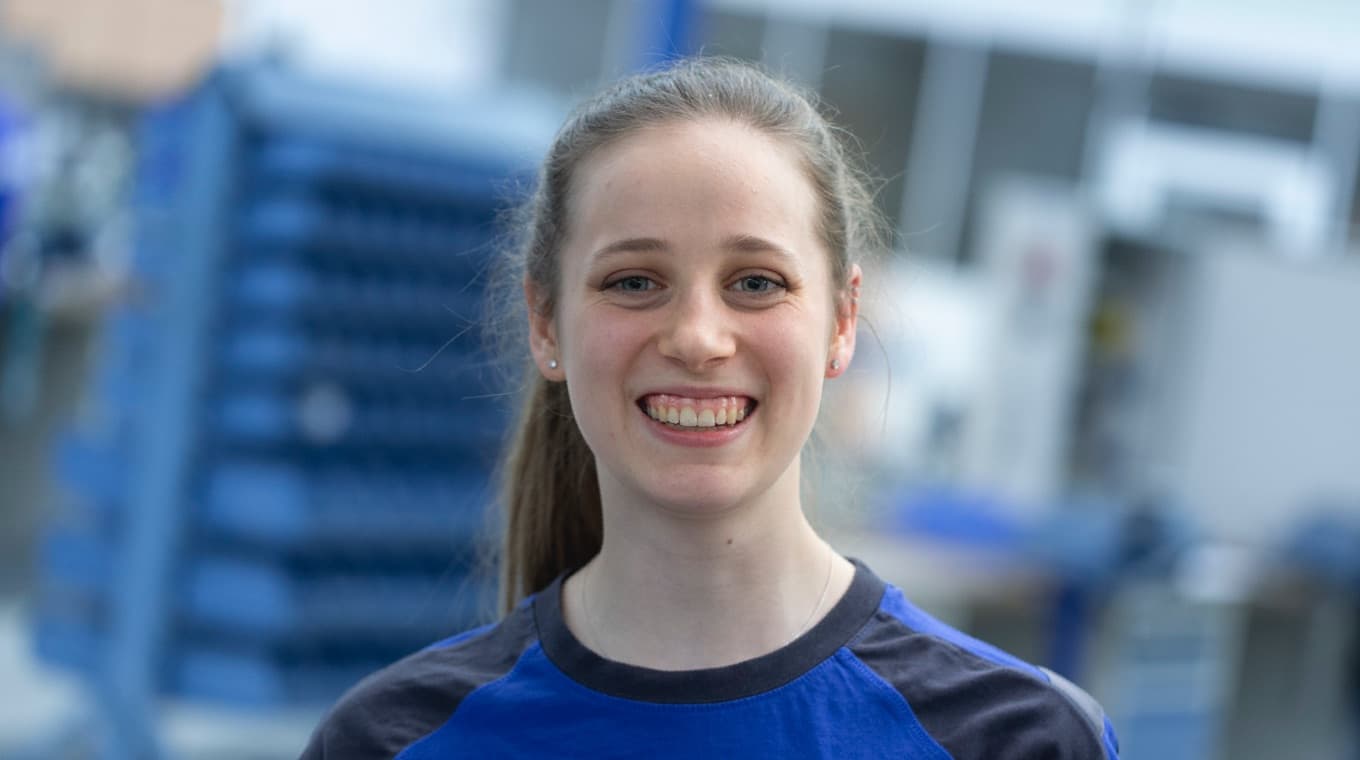
“As a mechatronics engineer you have good future prospects and in time can specialize in a certain field.”
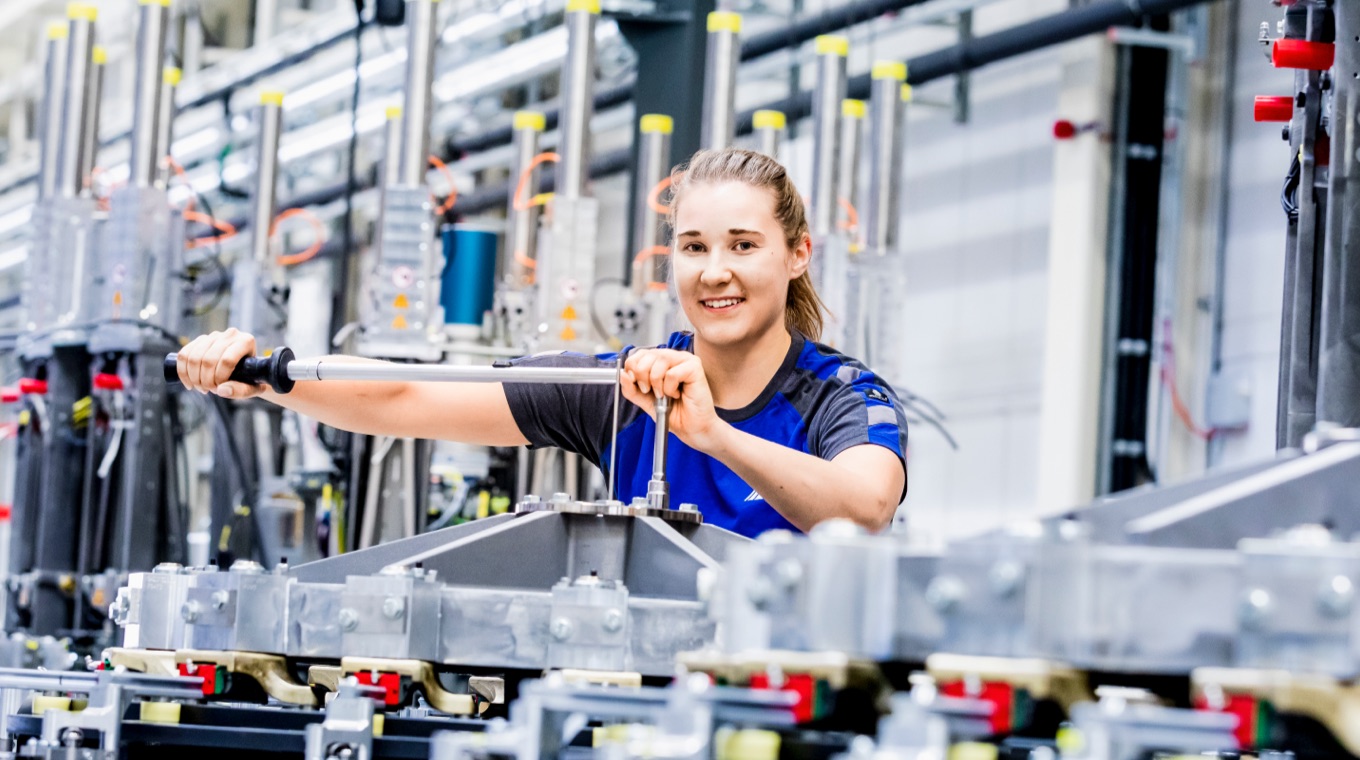
“What I particularly liked about my training course was that you’re free to develop your skills at KHS.”
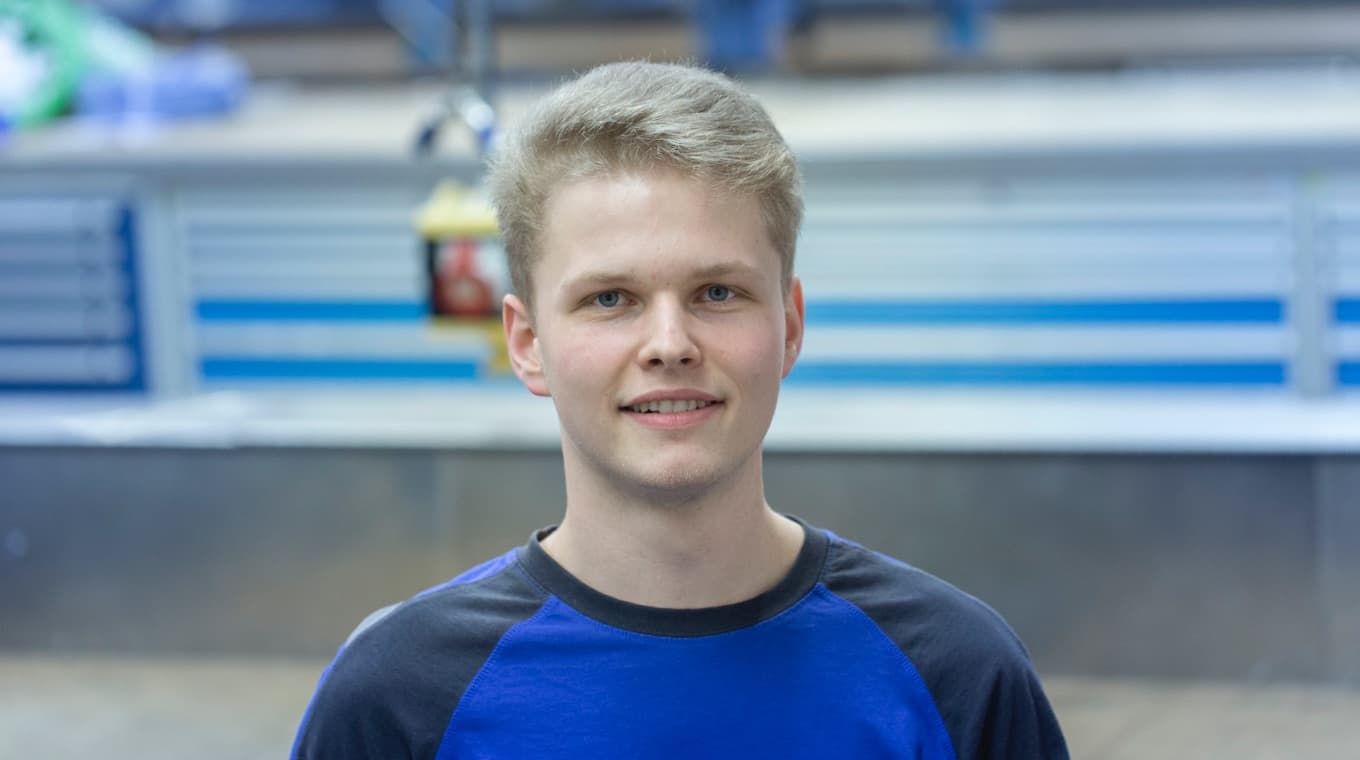
“Even as a little boy I always tried to repair everything myself – and was usually successful.”